
- Employee awareness
- 5 min read


Every single organisation, whether they like it or not, has become or is on the way to becoming increasingly reliant on data to drive their business decisions. In fact, this report from IDC (International Data Corporation) states that 83% of CEOs want their organisations to be more data driven!
By 2025, we will see an estimated 463 exabytes of data produced every single day. To put this into context, in 2015, the average number of exabytes produced each day was only 3!
As a result, data handling, management and the ethical considerations therein have become a hot topic for DPOs and Information Security professionals.
A recent KPMG survey cited in TechTarget revealed:
Not only do organisations have to contend with swaths of customer data, they also must pay attention to the handling of employee data, which can often be sensitive and personal.
This is where the principle and practice of ethical data management comes into consideration and has boomed in popularity over the last few years.
Ethical data management has had a positive influence when implemented in employee data security management. This is because employees begin to protect an organisation’s data as if it were their own due to the trust and mutual respect built through ethical data management.
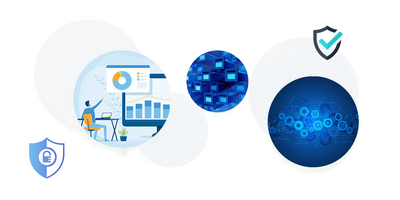
Ethical data management, in relation to the cyber security field, refers to the responsible and ethical collection, storage, processing, and use of data. Ethical data management ensures that data is collected and used in a manner that respects privacy and confidentiality, as well as legal and ethical obligations.
The importance of ethical data management by an organisation cannot be overlooked. There is a level of trust between employer and employee that must be upheld and respected for security and privacy reasons. Otherwise, if an employee trusts their company to protect their personal information, and they fail to do so … the organisation could face dire consequences.
Companies must implement robust ethical data management to protect employee data and customer data. This includes using solid encryption, two-factor authentication (2FA), limiting the number of people who have access to sensitive data via a verification process.
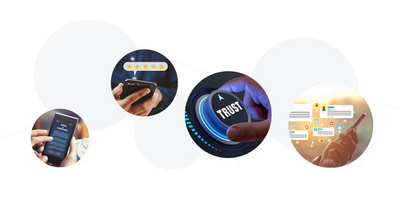
There are a few key principles when it comes to the ethical handling and management of data. They include:
Ethical data management is a quintessential component of any effective cyber security framework. It helps ensure that any collected data is used in a manner that respects individual privacy and, very importantly, stands up to legal and ethical scrutiny.
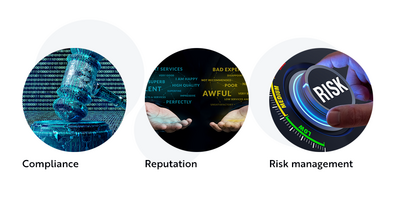
Compliance, reputation and risk management.
These are principles that make up the very fabric of a strong security culture as well as a successful organisation. Ethical data management is a sure-fire and considered way of ensuring you are always handling both customer and employee data with the respect they want to see … thus upholding your reputation and trust both externally and internally.
Implementing ethical data management practices benefits employers promoting legal compliance, building trust and reputation, and mitigating risk.
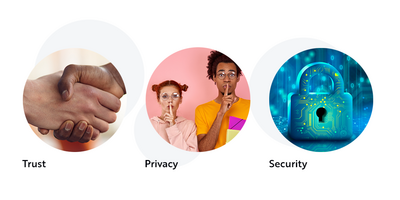
Human beings, in general, have become far more savvy to the way their data and online behaviours are being collected, stored, managed, and used. Employees have also become more aware of their data privacy rights and are expecting their employers to take concrete steps to protect their data.
In a survey conducted by Varonis, 70% of employees said that they were concerned about the security of their personal data, and 60% said they would consider leaving their current job if they felt their employer was not taking data privacy seriously. Data management is a massive decision-maker for employees!
Employees want ethical data management for three reasons: trust, privacy, and security.
Overall, ethical data management practices help to create a culture of trust, transparency, and accountability in the workplace, which can lead to increased employee satisfaction and retention.
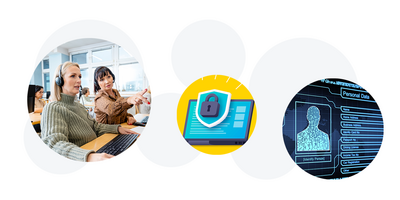
Only 23% of organisations actively mitigate data privacy risks across their entire workforce!
As Tim Cook, CEO of Apple, put it, "Privacy is a human right. It should be protected in every corner of the earth." Some may say that Cook’s words are hollow and ironic considering Apple’s data collection and management practices, but the sentiment of the Apple CEO’s words should not be lost.
When we use ethical data management to empower our employees to view an organisation’s data as highly as their own personal data, they are more likely to care and account for said data. By changing the fundamental way data is viewed, we improve trust, privacy, and security on both sides!
Ethical data management can not only help prevent breaches happening in the first place, but also dampens shockwaves in the case a breach cannot be prevented. For example, a report by Ponemon Institute found that companies that used solid encryption in their data security practices saved an average of $360,000 in the event of a data breach.
In conclusion, ethical data management practices are critical in ensuring the security and privacy of employee data, which in turn has a cumulative positive effect on the levels of trust, accountability, and satisfaction in the workplace.
If you would like more information about how The Security Company can help your organisation and deliver data protection and privacy training ... or how we can run a behavioural research survey to pinpoint gaps in your security culture ... or how we can improve your employee induction process, please contact Jenny Mandley.



© The Security Company (International) Limited 2023
Office One, 1 Coldbath Square, London, EC1R 5HL, UK
Company registration No: 3703393
VAT No: 385 8337 51


